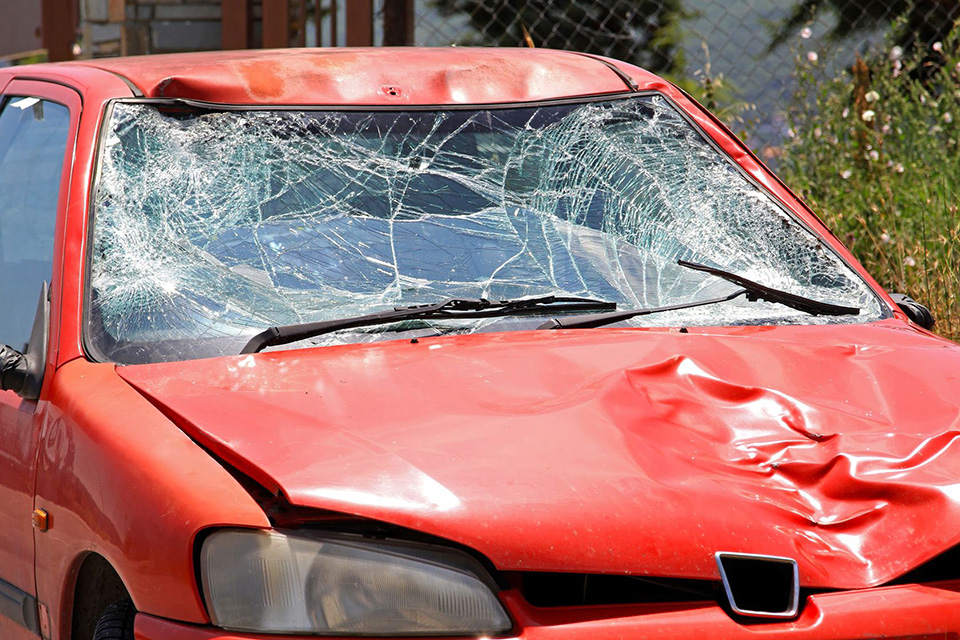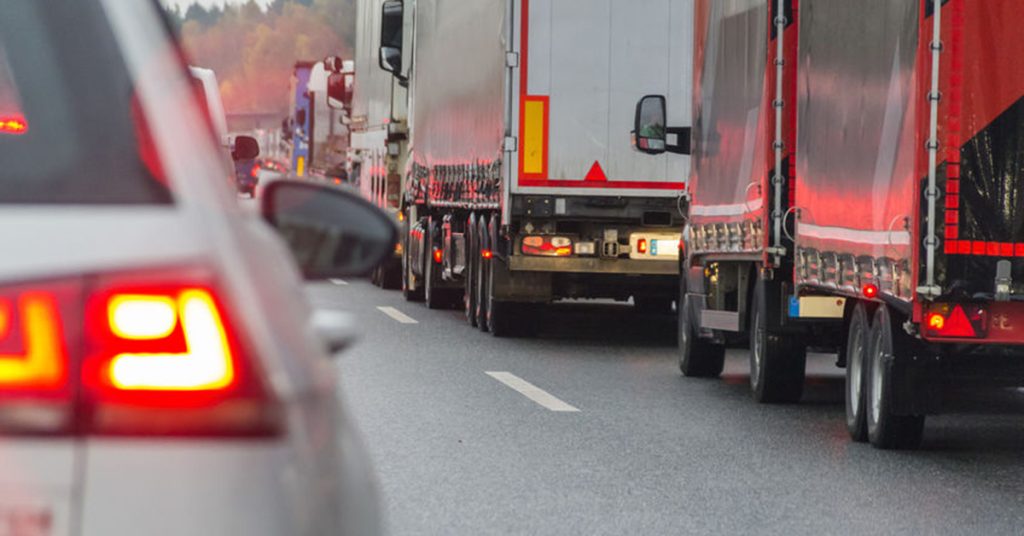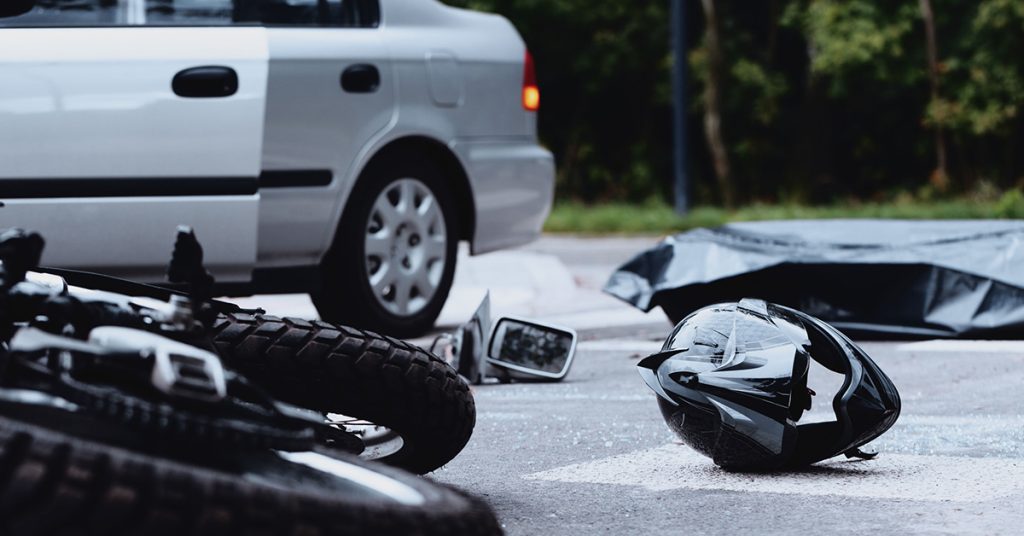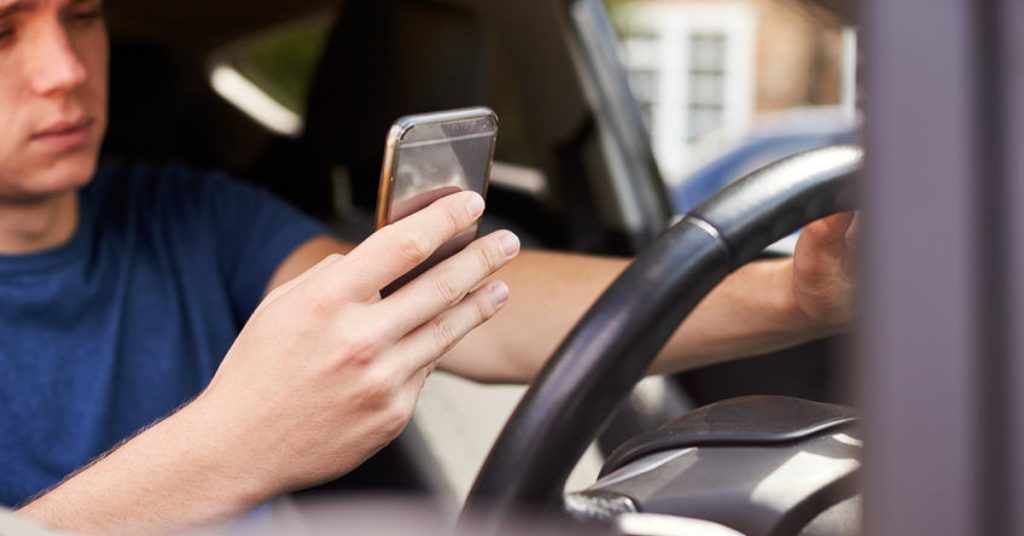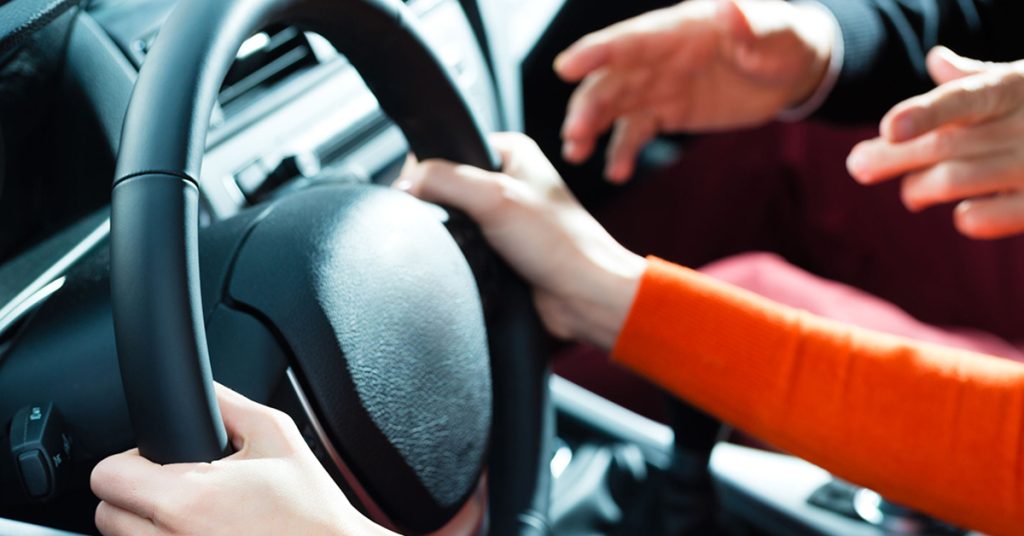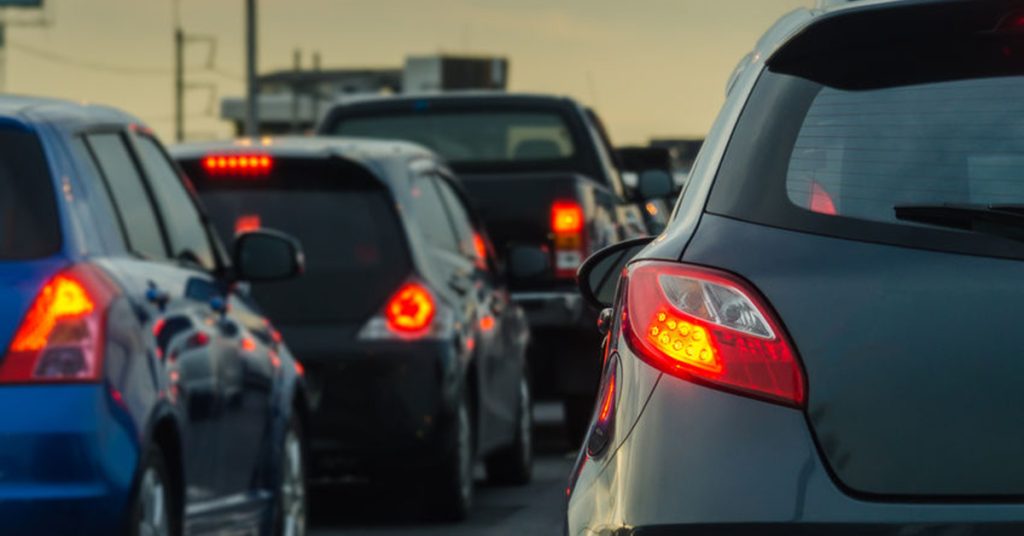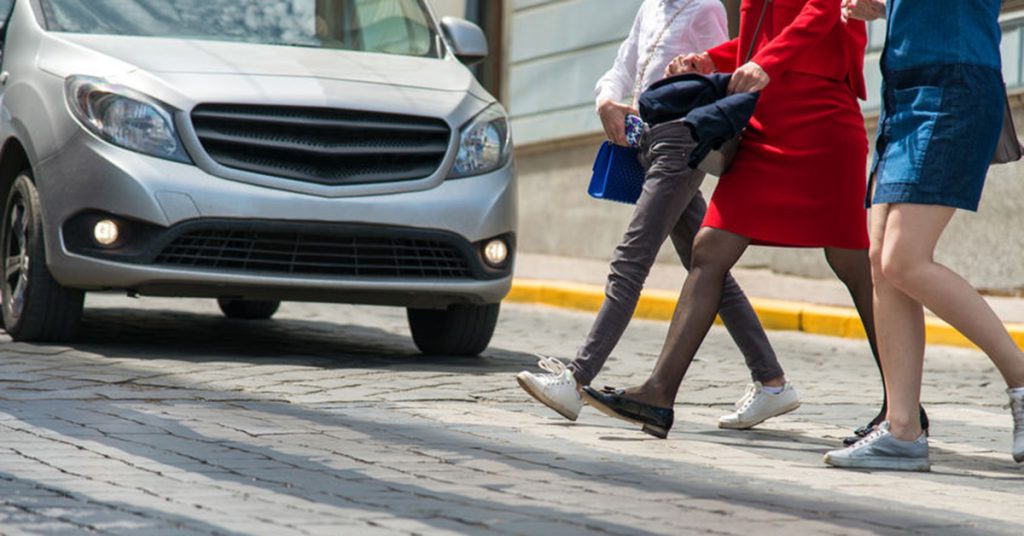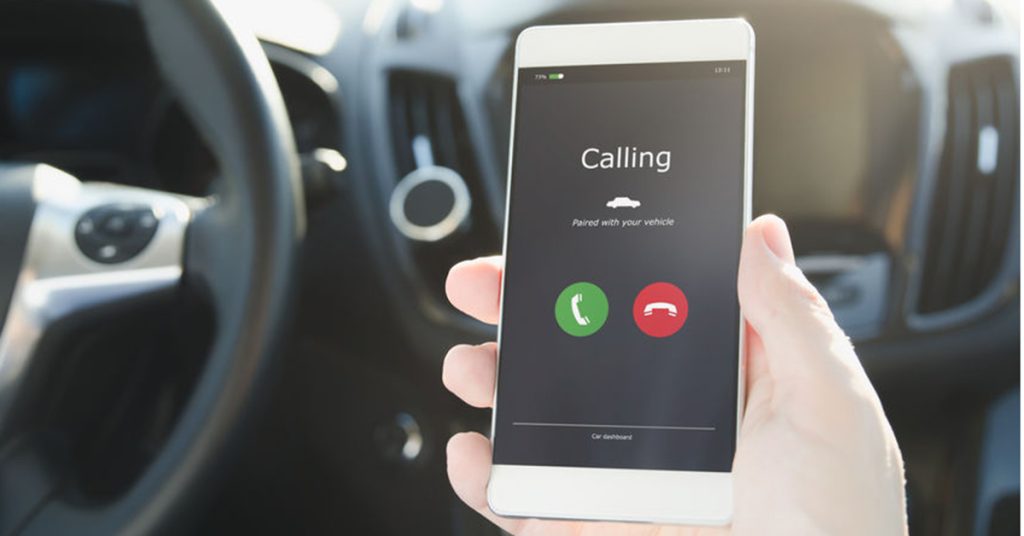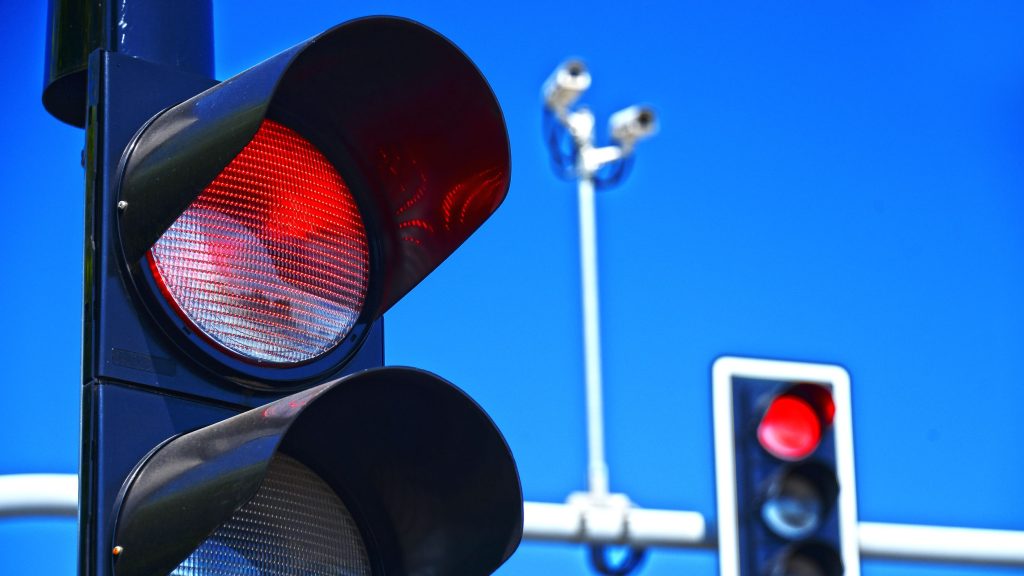Posts Tagged ‘“Boston car accident lawyers”’
Massachusetts, Other States Continue to Report Light Traffic, But Dangerous Speeds During COVID-19
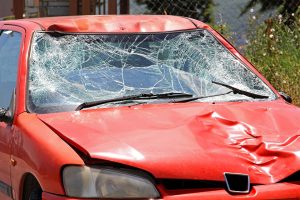 As employees work from home and schools offer remote learning, traffic volumes remain low across Massachusetts. This may mean less stressful driving at times. Yet it can also lead to an increased risk of car accidents caused by speeding.
As employees work from home and schools offer remote learning, traffic volumes remain low across Massachusetts. This may mean less stressful driving at times. Yet it can also lead to an increased risk of car accidents caused by speeding.
Across Massachusetts, traffic volumes are 20 percent lower than last year at this time, according to a MassDOT presentation this month. In some areas, traffic is even lighter. For instance, in the City of Boston, traffic is down as much as 48 percent.
North of Boston, there is an 18 percent decrease in traffic right now, according to the presentation. South of Boston, there is a 19 percent drop in MassDOT District 5, which includes Plymouth County, Bristol County and the Cape and Island. West of Boston, the decreases range from 28 percent to 18 percent.
If you commute, a MassDOT official said there is no peak traffic hour right now. This is true during both the morning and the afternoon/evening commutes. There is a consistent bump in traffic during these times, but nothing near pre-COVID 19 traffic levels.
An easier drive into Boston would be welcome news if not for COVID-19.
Boston is known for traffic gridlock. Many publications and websites have ranked the city’s driving experience among the worst in the U.S. Most recently, we earned a new honor, when WalletHub ranked Boston the 83rd worst of 100 driving cities.
According to the survey, Boston drivers log the most hours sitting in traffic congestion each year, along with drivers in New York City, Chicago, Philadelphia and Washington D.C. The rankings also noted Boston drivers are more likely to have a car accident than those in other cities.
Boston was ranked among the top 5 cities where drivers were most likely to have a traffic crash. This list also included the California cities of Oakland and Los Angeles, Washington D.C. and Baltimore, Maryland.
Speeding Accidents
Right now, there are fewer cars on the road. This may sound safer.
But NECN recently reported on the dangerous trend of drivers speeding into open roads. In Iowa, the state patrol recorded a 101 percent increase in drivers speeding 100+ mph from January through August. There was also a 75 percent increase in tickets for drivers who were traveling 25 mph or more over the speed limit.
In California, the highway patrol issued more than 15,000 tickets from mid-March through August 19 for speeding over 100 mph. This was a 100 percent increase over the same period in 2019.
Then, there is Ohio. Between April and September, state troopers issued 2,200 tickets to drivers traveling more than 100 mph between April and September. This marked a 61 percent increase from the same time last year. The highest speed was a stunning 147 mph.
Speeding can cause serious and fatal injuries, even when traffic is light. In April, there were 28 deaths, compared to 27 in April 2019 – despite half the traffic.
Like other states, Massachusetts has seen an alarming number of drivers cited for speeding. In March and April alone, Massachusetts police issued 15,071 speeding citations, including 259 drivers traveling at 100 miles or more, according to a Boston Herald report.
Police cited 1,035 drivers for traveling speeds of 90 mph to 100 mph. Another 2,518 were traveling between 80 and 90 mph.
Some of the fastest drivers were traveling even faster, at unbelievable and unsafe speeds. In Stoughton, a driver was caught traveling 140 mph in a 65 mph zone. Two other drivers reached 130 mph speeds in Ludlow and North Attleboro. On Cape Cod, a driver was caught traveling 125 mph.
Speeding is highly dangerous. MGL c.90, § 17 states, “No person operating a motor vehicle on any way shall run it at a rate of speed greater than is reasonable and proper, having regard to traffic and the use of the way and the safety of the public.”
Drivers have a duty to use reasonable care in Massachusetts. This means traveling the speed limit or slower when necessary for safety, even when there is no sign posted. In Massachusetts, cities and towns have a default speed limit of 30 mph in thickly settled or business districts. In 2016, the state passed the Municipal Modernization Act allowing communities to lower default speed limits to 25 mph. Many communities have done so and enjoy the improvements. Near schools and work zones, the speed limit is 20 mph.
Free Legal Consultation – Boston Car Crash Attorneys
If you have been injured, it is in your best interest to consult an experienced car accident lawyer. Since 1992, Breakstone, White & Gluck has represented those injured by negligent driving across Massachusetts, including in Boston, Cambridge, Quincy and the South Shore, the North Shore, Plymouth, Brockton and Cape Cod.
For a free legal consultation, contact our attorneys at 800-379-1244 or 617-723-7676 or use our contact form.
Chilling Reports of Multi-Vehicle Crashes on Massachusetts Highways

Recently, there have been several serious multi-vehicle highway accidents in the Boston area.
Many drivers have chosen backroads for the past few months. Now, as more people are driving again, we want to caution you to drive safely on Massachusetts highways. Recently, there have been some serious highway crashes, including multi-vehicle crashes.
Our safety tips for traveling on local highways:
Stay in your lane. Unless you have to move, staying in your lane is easier for you and more predictable to other drivers. You are also less vulnerable if another driver speeds up behind you suddenly.
Follow the speed limit. Always watch for the posted speeds. Expect to travel 65 mph on major highways and 55 mph on others. But remember you have a duty to use reasonable care. Driving safely may mean you have to slow down due to weather or traffic conditions to protect yourself and other drivers. You may also have to slow down if you approach a crash scene.
Make safe decisions. When you make bad decisions, you increase your chances of causing a car accident. Two very unsafe decisions are drinking and driving and speeding. On a highway, your dangerous decision is likely to cause far more injuries because of the traffic count and high speed. Think about a game of dominoes, without the game part.
Protect yourself near trucks. Try to avoid traveling right near or behind large trucks. If you must, provide them with ample room to avoid a crash.
Be aware that trucks create wind gusts. Keep both hands on the steering wheel and stay focused on the road.
Back off when a truck driver signals a lane change. On highways, the average truck needs an 8-second gap or 700 feet to change lanes, according to the AAA Foundation for Traffic Safety. This is the length of 2 ½ football fields.
Give emergency vehicles room to work. In Massachusetts, the Move Over Law establishes that drivers have duty to move out of the way of emergency responders and vehicles with flashing lights. You can be fined $100 if you violate this law. You are also likely to be held financially liable if you cause someone injury or property damage to a motor vehicle or a highway fixture, such as a sign or a guardrail.
Do not use cell phones on highways. Distraction and high speeds are not a safe combination. Avoid cell phone use on highways – or at least go hands-free. Picking up your cell phone to call someone and texting while driving are against the law in Massachusetts.
Recent Highway Accidents in Massachusetts
3-Car Crash Kills Young Girl on Route 6 in Westport. Two drivers collided on Route 6 in Westport on the morning of Sunday, Sept. 13. After assessing the damage, they decided to keep driving and to address the situation after clearing the highway. But as the cars started to move, a Jeep Grand Cherokee slammed into the vehicles, one of which was carrying a 10-year-old girl who was killed and her 9-year-old sister, who suffered serious injuries.
7-Vehicle Crash on I-93 in Dorchester. In late August, news outlets reported a tragic multiple car crash on I-93 in Dorchester, just after 7:30 p.m. According to the Cape Cod Times, a 39-year-old female driver hit a highway barrier and an ambulance, then died from her injuries. She was not the only victim. The crash involved a total of 7 vehicles and several people were transported to receive medical care.
Wrong Way Crash Kills 2 in Brockton. Meanwhile in Brockton, a 30-year-old driver allegedly drove in the wrong direction at 3 a.m. Her Volkswagen Jetta struck a Hyandai Santa Fe, colliding and killing two people inside The Brockton car crash occurred on the Reynolds Memorial Highway and as of August 23, was under investigating by the Plymouth County District Attorney’s office and the Brockton Police. A third driver in a Chevy Tahoe was involved in the crash, but refused medical treatment (Source: NBC Boston).
Littleton Truck Crash on Route 2. In July, there was a very serious crash involving a tractor-trailer and two pick-up trucks on Route 2 in Littleton. Surprisingly, no one was injured in the multi-truck crash. However, emergency crews had to close down the eastbound side of the highway to recover the vehicles.
According to WHDH, emergency responders found the tractor-trailer and one of the pick-up trucks off the road on the guard rail. The other pick-up truck was overturned. Police were investigating the cause of the truck crash, according to WCVB-TV.
Free Legal Consultation – Boston Car Accident Lawyer
If you have been injured by someone’s negligent driving in Massachusetts, contact the lawyers of Breakstone, White & Gluck in Boston to learn your legal rights. If you have been injured in a multi-car highway crash, this is even more important. Highway crashes may involve several drivers and business vehicles or a large truck. The insurance claim process is complex for the individual drivers and passengers involved. As they attempt to find their way, the companies can mobilize quickly to defend their financial interests. It is vital that you act immediately to protect your rights.
Contact our Boston car accident attorneys for a free legal consultation: 800-379-1244 or 617-723-7676 or use our contact form.
For Massachusetts Parents, Resources from Child Passenger Safety Week
 While there is so much going on right now, we want to put a spotlight on Child Passenger Safety Week. The safety week began Sunday, Sept. 20th and continues through Saturday, Sept. 26th.
While there is so much going on right now, we want to put a spotlight on Child Passenger Safety Week. The safety week began Sunday, Sept. 20th and continues through Saturday, Sept. 26th.
Motor vehicle accidents are the leading cause of death among children in our country, according to the CDC. Parents, of course, want to protect their children and follow Massachusetts car seat and safety belt laws. But this can be a challenge as children outgrow car seats, especially during COVID-19, when most shopping has to be done online.
We hope parents and grandparents find the resources on this page helpful. Remember, you want to find a car seat that fits your child and your vehicle. You also want to feel comfortable using it each day. A second-hand car seat may work for you. But for many people, we encourage to you start with a new car seat if you can.
In Massachusetts, children must ride in federally-approved passenger safety seats. They must ride in a car seat from birth until they reach age 8 or stand more than 57 inches tall. Children must be properly fastened and secured according to the manufacturer’s instructions. But where should you start? This is where parents often grow frustrated, as there are different car seats based on a child’s age and size. We will get you started: Children should start with rear-facing car seats until they reach the top height or weight limit set by the car seat maker. They will then move to a forward-facing car seat, then finally a booster seat.
Here are some resources:
- Child Passenger Safety Week. Read safety resources from the National Highway Traffic Safety Administration.
- Find the Right Car Seat. Check out this NHTSA chart on finding the right car seat.
- Massachusetts Car Seat Resources. Most years, the state of Massachusetts and local communities offer free car seat inspections and fittings for parents. This is an invaluable opportunity for parents. Due to COVID-19, you can expect fewer – if any – in-person car seat inspection opportunities. We suggest you start by visiting the state web page. Here is another helpful resource: Massachusetts Car Seat FAQs.
- Watch a How-To Video. While it may not be the same as an in-person inspection, the NHTSA offers helpful videos to help parents secure children at different stages.
- Keeping Asking for Help. If you are still unsure about your car seat, it is alright to keep asking for help. Try asking a family member or friend. You can also try your pediatrician’s office or visit your local police department’s website to see if they are offering car seat inspections at this time.
- Check Your Car Seat for Recalls. Check www.cpsc.gov to see if your car seat has been recalled. If you find a recall, call the manufacturer immediately and ask for the recall action. Often, a company will send a replacement part. But they may issue you a refund and ask you to return a defective car seat to a local store. Always follow a manufacturer’s instructions on disposing a recalled product.
- Register Your Car Seat. It’s easy to become distracted when you buy a car seat or a major item. Did you forgot to register yours? Take a minute to visit the manufacturer’s website now. Better late than never on this one. If there is a recall, this is the best way to get timely notification.
- Buckle Children Up Last. Pack everything up for the day in your car – work bags, backpacks, sports gear and lunch boxes – then buckle your child into their car seat last. This way you can always keep them in sight and talk to them as you get ready.
About Breakstone, White & Gluck – Boston Car Accident Lawyers
With more than 100 years combined experience, Breakstone, White & Gluck represents those have been injured by negligence and wrongdoing in Massachusetts. We specialize in the handling of personal injury, medical malpractice and car accident cases, including the representation of cyclists and pedestrians who have been injured. To learn more about our work, read our Car Accident Case Results page.
For a free legal consultation, contact our lawyers at 800-379-1244 or 617-723-7676 or use our contact form.
As Riders Return, a High Number of Motorcycle Accidents and Fatalities in Massachusetts
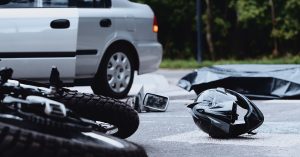
Massachusetts has seen a number of motorcycle accidents, as riders and other drivers return to the road after COVID-19.
Five months from the outset of COVID-19, many motorcyclists are just getting back on Massachusetts roads. Yet already, we have seen several serious and fatal motorcycle accidents in the Boston area, Cape Cod and across the state, a reminder that riders need a little extra room for safety.
In recent weeks, motorcycle accidents have been reported in North Adams, Westfield, Springfield, Wrentham, Taunton, Dudley, Milton, Randolph and Lynn. Toward Cape Cod, motorcyclists have been injured in Bourne, Hyannis, Lakeville, Randolph and Bridgewater.
All these accidents, coming as the state of Massachusetts re-opens, show the need to emphasize motorcycle safety. Motorcyclists have a responsibility to follow traffic laws and wear helmets and protective clothing. In turn, drivers must pay attention to how close they are to motorcyclists and watch when turning or changing lanes.
Commit to drive safely. Obey speed limits and follow traffic laws to reduce your risk of car accidents and motorcycle collisions. Right now, traffic is unpredictable and schedules are less important. After days of little traffic, you may see several hours of cars and trucks speeding. Some vehicles are really racing because there are open roads, very light traffic.
First, take a good look at a motorcycle. Motorcyclists operate on two wheels, without the protection of a windshield and a car or truck frame. Because of this, motorcyclists are more likely to be injured should there be a collision on the road. Large trucks are the most dangerous vehicles on the road. They can hit motorcyclists, then drag them under the carriage. Truck accidents injuring motorcyclists are most likely to be fatal. But motorcyclists are highly vulnerable to any unexpected movement, making it important to give them room.
Raise Your Awareness About Motorcycle Accidents
Fatal motorcycle crashes. Motorcyclists are much more susceptible to crashes than other drivers. According to the National Highway Traffic Safety Administration (NHTSA), motorcyclists account for 3 percent of all registered vehicles in the U.S. and just .6 percent of all vehicle miles traveled. Yet, per vehicle, motorcyclists have 6 times the fatality rate as other drivers.
Follow motorcycles at a distance. If you are driving behind a motorcycle, give the driver additional space. More than you would provide any other vehicle. Recognize that drivers are more likely to be involved in a motorcycle accident when making a left turn in front of a motorcyclist.
Never try to anticipate the motorcyclist’s next turn so you can get moving again. Likewise, do not trust the motorcyclist’s blinker. It may not have fully cancelled out after a prior turn or lane change. You just have to be patient.
Broadside collision. When a driver collides with the side of a motorcycle at a high speed, they can seriously injure the motorcyclist. These are also known as T-bone accidents or side impact motorcycle crashes.
Blindspots and mirrors. Use your mirrors as a guide to help you see the motorcyclist. But remember, motorcyclists can be in your blind spot. Even when you see them, you may not understand how far they are actually away from your vehicle. This is another reason to slow down and give riders more space.
Poor visibility. Respect hazardous weather conditions. Be aware that you may have to really look for motorcyclists, slow down and give all motor vehicles more distance.
Road hazards. Give motorcyclists additional time and space when the road surfaces change. For example, aging roads with potholes, construction work zones and railroad tracks.
Obstructed views. Many motorcycle crashes happen because drivers neglect to look. They may be busy or distracted as they back out of a parking lot or approach a turn. Other times, drivers make bad decisions because of obstructed views. They make the decision to turn or go when they don’t have a full view of the road, parking lot, rotary or intersection. There may be a truck blocking their view from behind or an SUV next to them at a traffic light. Make sure you can see the entire road and continually check your side and rearview mirrors to help you see around large trucks.
Safe driving behaviors. We have now reached August, the last month of summer. Enjoy your time, but please use good judgment. We urge you not to operate a motor vehicle or motorcycle while under the influence of alcohol. Drunk driving, distracted driving and operating while fatigued are highly dangerous. Use caution driving at night, just as you would during the day. You may not realize just how many pedestrians, cyclists or motorcyclists are out this year.
Motorcycle Safety Resources
Finally, if you are a Massachusetts motorcyclist, remember your responsibilities and the resources you have to protect yourself. Under Massachusetts law, motorcyclists are required to wear a helmet when riding to protect themselves from head injuries. Wearing a helmet, along with the right safety gear, is fundamental to protecting yourself. The state of Massachusetts also offers the Motorcycle Ridership Education Program, which offers training for beginning and advanced riders.
Purchasing the right types and amount of auto insurance is also critical for motorcyclists. Read our article, “Massachusetts Motorcyclists: Buy the Right Types of Auto Insurance to Protect Yourself and Your Finances.”
Free Legal Consultation – Boston Motorcycle Crash Lawyers
At Breakstone, White & Gluck, our Boston motorcycle accident lawyers represent those who have been injured by negligent or reckless driving. With more than 100 years combined experience, our attorneys have won several major awards for motorcyclists.
For a free legal consultation, call Breakstone, White & Gluck at 800-379-1244 or 617-723-7676 or use our contact form.
Distracted Driving Laws Are Saving Teen Lives, Research Says
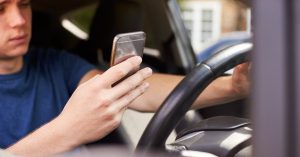
Distracted driving laws are reducing teen driver crashes, study says.
When drivers use cell phones, they introduce grave dangers to the road and are more likely to crash. This is why many states have now passed distracted driving laws. But how effective have these laws been?
Highly effective, suggests new research. Distracted driving laws are saving the lives of both teen drivers and their passengers in car crashes. The greatest impact is seen when states ban all drivers from cell phone use, not just junior operators under age 18.
Researchers at Massachusetts General Hospital published the findings from a 10-year study in Pediatrics journal. Reviewing more than 38,000 motor vehicle crashes reported between 2007 and 2017, researchers found a significant decrease in fatal motor vehicle crashes among drivers age 16-19.
There was actually a 43 percent reduction in deaths among 16-year-old drivers in states which passed hand held cell phone bans for all drivers (not just a ban for junior operators under 18).
Researchers had the challenge of working with evolving cell phone laws. When the study began in 2007, just 15 states had passed one type of distracted driving law, often a texting while driving ban. By the end, researchers were reviewing the impact of multiple bans, including texting while driving bans (both primary and secondary), hand-held bans and bans on all types of cell phone use for drivers under age 18.
Distracted Driving In Massachusetts
Massachusetts distracted driving crashes are a serious concern, having caused the deaths of drivers as well as pedestrians and cyclists. Once drivers pick up a cell phone, it is hard to break their attention away. The younger the driver, the harder it can be and this makes it essential for teens to establish good habits from the start.
In Massachusetts, a high school student was the first to be criminally prosecuted for motor vehicle homicide, texting while driving and negligent operation of a motor vehicle, according to CNN. Police allege the 17-year-old Haverhill man exchanged nearly 200 text messages in the hours leading up to the fatal crash in 2011. The crash killed a 55-year-old New Hampshire driver and seriously injured his girlfriend, who was riding in his passenger seat. As the prosecutor said at sentencing, “there are no winners today.” He went onto say, “…in a split second, many lives are forever changed.”
The state of Massachusetts reported a 170 percent increase in distracted driving crashes between 2014 and 2016. Over the past few years, lawmakers and safety advocates negotiated proposals to pass a hands-free law or a ban on handheld cell phone use. This finally reached resolution in November 2019, taking effect in April.
Under the Massachusetts Hands-Free Law, drivers are no longer allowed to use hand-held cell phones. They must now use voice-activated technology. The goal is to reduce injuries by taking away the act of reaching for a phone and attempting to dial. However drivers must still use voice-activated cell phones cautiously. Drivers can still cause accidents when using voice-activated technology and can still be held liable if they cause someone’s injuries.
Teen drivers – Massachusetts junior operators under age 18 – are still not allowed to use hands-free cell phones under the new law.
Free Legal Consultation – Boston Car Accident Attorneys
At Breakstone, White & Gluck, our attorneys fight for the rights of those injured by negligent driving in Boston and across Massachusetts. With more than 100 years combined experience, we have a reputation for strong results for victims of car accidents, truck crashes and bus collisions.
If you have been injured, call our attorneys for a free legal consultation: 800-379-1244 or 617-723-7676 or use our contact form.
Study: Teen Driving Accidents Claim More Than 7 Lives Each Day of Summer
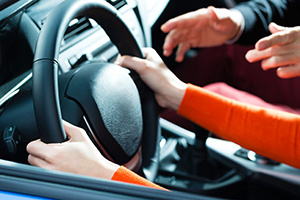 We know many Massachusetts parents regularly talk to their teens about safe driving to prevent car accidents. You should be commended for engaging in this often-stressful conversation.
We know many Massachusetts parents regularly talk to their teens about safe driving to prevent car accidents. You should be commended for engaging in this often-stressful conversation.
We urge you to continue on this summer. Helping teens understand the difference between appropriate and unsafe choices and build strong driving skills is a life-long investment in their safety and the safety of others.
Nationwide, teen driving crashes killed more than seven people each day of summer from 2008 to 2018, according to AAA Foundation for Traffic Safety. AAA recently released the 2020 “100 Deadliest Days” of driving report, once again warning teen drivers and parent to take extra precautions between Memorial Day and Labor Day.
Be aware of the unique risks this summer, AAA says. In response to the COVID-19 pandemic, many summer jobs and activities have been cancelled. With more free time, teens may be driving more. AAA urges parents to read its 2020 “100 Deadliest Days” report, and its Parent Coaching Guide, and to have teens sign a safe driving agreement. With this approach, parents can set clear expectations for teens and refer them to the agreement should they forget. If teens violate the terms of the agreement, they may lose driving privileges for a period of time.
Research on Teen Driving Crashes
Here are a few figures for parents to consider. AAA’s research found more than 70 percent of teen drivers age 16-18 had engaged in unsafe and illegal driving behaviors.
Seat belt Use
17 percent of teen drivers admitted to not wearing a seat belt.
Speeding
47 percent of teen drivers admitted to driving 10 mph over the speed limit on a residential street.
40 percent of teen drivers admitted to driving 15 mph on a freeway.
Texting and Cell Phone Use
35 percent of teen drivers admitted to texting while driving.
Other Driving Violations
More than 30 percent of teen drivers admitted to running red lights and aggressive driving. Meanwhile, 25 percent of teen drivers admitted to drowsy driving.
Parents can influence teens on some of these behaviors by developing a teen driving agreement (there are several available on the Teen Driver Source website). Your conversations with your teens are also essential.
Help Your Teen Drive Safely
Help your teen drive safely and avoid a car crash.
Many states have graduated licensing laws, including Massachusetts. Encourage your teen to follow the Massachusetts Junior Operator Law at all times. Under this law, teens are not allowed to use cell phones when driving in Massachusetts, not even under the new Massachusetts “hands-free” driving laws.
When they have a question, encourage them to ask, review their driver’s education materials or the Massachusetts Driver’s Manual. When drivers understand the law, they are more confident making decisions on the road.
Another opportunity is to drive together. Take turns in the driver seat. When you drive, take the opportunity to show your teen how you follow the speed limit. On a 30 mph street, this means driving 30 mph or less, not 35 or 40 mph. Tell your teen what you are doing and why.
Speed-related crashes are prevalent among teens. Simply slowing down and following other vehicles at greater distances can make a tremendous impact in reducing car accidents. At slower speeds, your teen has more time to stop and if they have a collision, injuries are likely to be less severe. Accident victims are more likely to survive a teen driving accident.
At the same time, parents should understand that when teens speed, they may be intentionally speeding and risk-taking. This is unacceptable. But often, the reason is driver inexperience. Teens need more practice using the gas and brakes, and you may need to explain that traveling “just” 5 mph or 10 mph over the speed limit is dangerous. In fact, you may need to do this a few times, also explaining that teens are more likely to cause injury when they speed and receive a speeding ticket which will impact their junior license.
To help your teen, be patient. Your goal is to demonstrate safe driving techniques and give them feedback when they make a good decision or make a mistake. Yet, if you are too critical, you will make your teen nervous and reluctant to drive with you. Tread lightly but firmly. It’s alright to take a break, but don’t stop trying.
Free Legal Consultation – Boston Car Accident Lawyers
At Breakstone, White & Gluck, our Boston car accident attorneys represent those who have been injured by negligent driving in Massachusetts. Car accidents often result in serious and catastrophic injuries, including head injuries, spinal cord injuries, broken bones, lacerations and death. When victims survive, they may require medical care, have to take time off from work and suffer other financial losses.
Always learn your legal rights after an injury. For a free legal consultation, call our car accident attorneys at 800-379-1244 or 617-723-7676. You can also use our contact form.
Keeping Your Massachusetts Auto Insurance Policy in Good Standing During COVID-19 Emergency
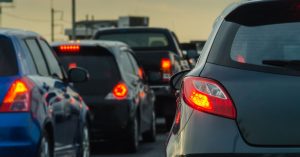
Save yourself time and frustration. Our tips for keeping your Massachusetts auto insurance policy in good standing during the COVID-19 state of emergency.
Be proactive and keep your auto insurance policy in good standing during the COVID-19 emergency. When you move or cannot make payment, let your auto insurer know in advance. This will save you a great deal of time, frustration and money during an already stressful time.
First, some news on a small savings. Due to a decrease in driving, many insurers have committed to giving Massachusetts drivers a 15 percent discount for April and May (roughly $30 in savings on a $1,200 policy), according to The Boston Globe. Not a large savings, but you don’t have to be proactive here. Just look for the credit to appear on your premium statements or a rebate check to arrive in the mail.
How Auto Insurance Works For You
Auto insurance is a critical tool in protecting yourself and your family from injury and major financial loss in a car accident or truck crash. If you were negligent in a car crash, you need to have coverage to financially compensate any victims for their medical expenses and other losses. This protects your other financial assets.
When another driver is at fault and causes your injuries, you should be entitled to seek compensation from their auto insurance policy. What’s unfair is this coverage may not be available if the driver is uninsured or is underinsured and has only purchased the state’s minimum requirement for compulsory coverage.
Many drivers should also purchase optional coverages to protect themselves. Read more in our article, “Understanding and Buying Massachusetts Car Insurance.”
Keep Current with Auto Insurance Billing
If you are unable to pay your auto insurance premium, notify your insurance agent or insurer in advance of your payment date. Auto insurers have the right to cancel your policy for non-payment and they can do so in short time. This can lead to extra fees and take up a lot of your time. The worst scenario is if you are stopped by a police officer when your auto insurance has lapsed. You could be fined and your license could be suspended, adding another layer of time and frustration.
Avoid this stress. Call your insurer and request a payment extension. The Massachusetts Department of Insurance has advised insurers “to work with consumers to be flexible and make every possible effort to avoid policy cancellation.” Read this advisory.
And if you don’t have electronic access to your auto insurance policy, ask about setting it up now so you can monitor your account.
Update Your Address
The Massachusetts Department of Insurance calls this “the single most important thing you can do to protect yourself from a claim denial.” Your insurer sets your premium in part based on your address and the risk of collision there. If you don’t update your address, your insurer may still pay claims for your compulsory coverage. Very likely they will deny claims for your optional coverages.
If you have moved or returned home from college, notify your insurer that you have changed your address and are garaging your vehicle in a different location. Your insurance company may (or may not) provide you with some leeway up to 30 days. Regardless, update your policy immediately. You also have an obligation to update your motor vehicle registration and license and you can do this online.
Don’t own a car? Remind your family members to add you back to their policy.
Reconsider Your Coverages
As Massachusetts looks to reopen, some workers will telecommute. Still, we urge you not to reduce your auto insurance coverages to save money. Not yet. But start a conversation with your auto insurance agent about your current coverages and if they meet your needs.
Start by asking about your optional coverages. Specifically, do you have enough MedPay coverage? And do you need more underinsured and uninsured coverage? A note, if you can only raise one, purchase more MedPay, which will help pay your medical bills. For a few dollars, you can increase your coverage by $10,000 or more and this makes a big difference). Then consider raising your underinsured and uninsured coverages as well. If you do, make sure you purchase the same amount of bodily injury coverage.
If you are spending more time on a bicycle, we urge you to wear a helmet first and foremost. You will also benefit by adding auto insurance coverages to help with your medical expenses and other losses. You may be able to add coverages to your own auto insurance policy or to a household policy. Read our article, “What Every Massachusetts Bicyclist Needs to Know About Car Insurance.”
Going forward, if you transition to working at home more, monitor your mileage. You may be able to request a low mileage discount and save money without losing any coverage.
Also, consult your insurance agent if you begin driving as part of a new job or as an independent contractor for a restaurant or business. If you are in a car accident while making work deliveries, your private passenger auto insurance policy will not cover you.
The Massachusetts Department of Insurance advises drivers and businesses to ask their insurers about endorsements for delivery drivers during the Massachusetts COVID-19 state of emergency. Read the state’s advisory, “Insurance FAQs During COVID-19 Public Health Crisis.”
About Breakstone, White & Gluck – Boston Car Crash Lawyers
Breakstone, White & Gluck is consistently recognized as a top-rated personal injury law firm in Boston. With more than 100 years combined experience, our attorneys have assisted thousands of car accident victims in Boston, Cambridge, Quincy and across Massachusetts. We have a track record of successful results covering nearly 30 years.
For a free legal consultation, contact Breakstone, White & Gluck at 800-379-1244 or 617-723-7676. You can also use our contact form.
In Massachusetts, Less Traffic Congestion, But Drivers are Speeding Dangerously Down Open Roads

In Massachusetts, traffic is lighter during the COVID-19 emergency, but drivers are being warned to slow down.
During the COVID-19 emergency, Massachusetts residents are getting an unprecedented look at life without traffic congestion. With fewer cars out, there have been fewer accidents. But the drivers who are out have been speeding down open streets. State transportation officials say the high speeds are contributing to traffic fatalities.
The rate of traffic fatalities doubled in April, when traffic dropped by 50 percent on some highways, according the Massachusetts Department of Transportation (or MassDOT). The Boston Globe reported that 28 people died in April, compared to 27 during April 2019, when there was no disruption to traffic.
Speeding and distracted driving have contributed to fatal accidents. According to MassDOT, the fatal crashes resulted in the deaths of drivers, passengers, two motorcyclists and three pedestrians. In Boston, a cyclist was killed by a large truck near Massachusetts and Harrison avenues.
In Boston, Mayor Marty Walsh urged drivers to slow down during his briefing last week. News briefing posted May 1.
“With less traffic, what we’re starting to see is increased speed,” Walsh said. “So the crashes that do happen have been more severe due to the high speed impacts. Even an increase of four to five miles per hour can make a big difference in terms of injuries and possible death.”
The MassDOT did not provide overall crash data for last month. Preliminary data shows two-thirds of crashes happened on local roads.
When traveling in their communities, drivers must remember that they share the road with cyclists and pedestrians. Right now, there are more people out, of all ages. It is essential to stop at crosswalks, yield to pedestrians and drive slowly.
It is also essential to watch for cyclists and practice situational awareness, especially when turning at intersections. Remember that cyclists are allowed to travel in bike lanes, on the right side of the road or in the middle of the lane if necessary for safety. Because cyclists may need to change their lane (for example, to avoid an illegally parked car), it is important to provide cyclists with ample room to make safe decisions.
Just How Slowly Should You Drive?
As a first step, commit to follow the speed limit or travel even slower when necessary. By doing so, you leave yourself more time to stop and prevent a crash before it happens.
It is important to remember that you control your speed and research has found fatal injuries are less likely at lower speeds. Consider a driver who was traveling at 40 mph and hit a pedestrian. There is a 73 percent likelihood that the driver will cause the pedestrian severe injury or death, according to the Vision Zero safety campaign. At 30 mph, the risk for severe injury or death is reduced to 40 percent. At 20 mph, there is a 13 percent likelihood of causing severe injury or death.
Fewer Drivers, Fewer Tickets and Fewer Car Accidents
The Boston Globe reported on Massachusetts traffic activity on April 30th. As the state responds to COVID-19, there has been a dramatic decline in traffic, citations and accidents.
From March 23 to April 26, more than 2,600 car accidents were reported across Massachusetts. 12,000 car accidents were reported during the same period in 2019.
Another measure of driving activity is usually traffic citations or moving violations, such as speeding and parking violations. But during the first three weeks of April 2020, as residents stayed home and law enforcement responded to COVID-19, Massachusetts police departments issued 95 percent fewer tickets for moving violations compared to the same period in 2019.
While traffic remains light overall, Massachusetts State Police have also observed a “significant surge” in drivers speeding more than 100 mph, according to the Globe. Specifically, drivers have also complained about speeding on the MassPike. Now, the agency plans to increase patrols at random times and places.
Breakstone, White & Gluck – Boston Car Accident Lawyers
Free Legal Consultation
Breakstone, White & Gluck represents those who have been injured by the negligence of others in Massachusetts. Our personal injury attorneys provide experienced representation after motor vehicle accidents, including car accidents, truck crashes, pedestrian accidents and bicycle collisions.
Learn your legal rights after an accident. For a free legal consultation, contact Breakstone, White & Gluck. Call 800-379-1244 or 617-723-7676 or use our contact form.
Massachusetts Hands-Free Law Update: Fines Can Begin April 1, 2020

The Massachusetts hands-free driving law bans this action. Fines start today, April 1, 2020.
As of today April 1, Massachusetts police departments can start to issue citations and fines to drivers who violate the Massachusetts hands-free driving law. We encourage you to follow the Massachusetts COVID-19 “Stay at Home” advisory. But if you have to go out, you can help yourself drive more safely and avoid a fine by checking that your car is set up for hands-free mode. Even better? Read this update, but turn off your cell phone while driving. Many of us are exhausted and out-of-routine. Focus on the roads and what you need to get done, so you can get back home.
So far, many drivers are still picking up phones, despite the new law. During the initial grace period from Feb. 23-Mar. 31, police issued 4,500 written warnings across Massachusetts, according to a state official interviewed by WGBH. The official said drivers must become aware of both the law and that police are watching.
“…the police officers I’ve talked to seem to say that everyone who is pulled over says, “Yes, I’ve heard about it. Sorry. My mistake,” said Jeff Larason, director of highway safety at the Massachusetts Executive Office of Public Safety. (Listen to the WGBH segment in full).
Massachusetts passed a texting while driving law in 2010 but lawmakers spent nearly 10 years debating the handheld cell phone ban.
The Massachusetts hands-free driving law was passed by the Massachusetts Legislature in November 2019 and quickly signed by Gov. Charlie Baker on Nov. 29. To help drivers get ready, the state granted an initial grace period. Larason told WGBH 4,500 drivers had received written warnings (broadcast date: March 13). The Boston Globe reported State Police had issued 578 warnings to drivers, in just the first week. On Cape Cod, local police reported 150 verbal or written warnings in the first week (Source: South Coast Today via Cape Cod Times).
What the law allows and bans:
- The law states drivers cannot use any electronic device, including mobile telephones, unless the device is being operated in hands-free mode.
- Drivers can only touch cell phones and mobile phones once to activate hands-free mode.
- Cell phones must be properly mounted to the windshield, dashboard or center console and not impede with operation. This is the only way drivers are allowed to use GPS or voice to text technology such as Bluetooth.
- Drivers are specifically not allowed to touch phones for texting and emailing. Use of apps, video or Internet is also prohibited.
- Drivers who are 18 and younger are not allowed to use cell phones behind the wheel. Hands-free is illegal and can result in violation of their Massachusetts Junior Operator’s License.
- You may be stopped. But you are not allowed to pick up your phone at red lights or stop lights.
- You can pick up your cell phone and make a call if you are in a stationary position, outside a travel lane or bicycle lane.
- There is also an exemption for emergency professionals who need to pick up the phone for calls and those calling 911. 911 calls must be taken seriously. The state advises drivers to make every attempt to pull over before calling 911 – even if you are in hands-free mode.
Violations of the Massachusetts Hands-Free Driving Law
Police in Massachusetts can now start issuing tickets. Here are the penalties:First offense: $100 fine.
Second offense: $250 fine and distracted driving education.
Third offense: $500 fine and distracted driving education.
With a third offense, you may face an insurance surcharge.
Related:
Massachusetts hands-free driving law, Mass.gov
Breakstone, White & Gluck – Boston Personal Injury Lawyers: 800-379-1244
With more than 100 years combined experience, Breakstone, White & Gluck specializes in representing plaintiffs in personal injury cases involving car accidents, truck accidents, pedestrian accidents and bicycle accidents. Our attorneys have extensive experience handling cases for clients injured by negligent use of cell phones and texting while driving. We represent clients across the state of Massachusetts in car accident cases, including in Boston, the North Shore, the South Shore and Cape Cod.
We are open and working remotely for our clients during the state’s COVID-19 advisories. If you have been injured, we are providing free legal consultations at 800-379-1244 or 617-723-7676. You can also use our contact form.
Massachusetts Considers Red Light Cameras to Catch Traffic Offenders

Massachusetts lawmakers are considering legislation to allow communities to install red light cameras.
In Massachusetts, drivers are getting a strong warning to slow down this week as the state Senate debates red light cameras.
The state Senate is scheduled to debate legislation proposed by Sen. William Brownsberger and redrafted by the Ways and Means Committee.
The proposed bill would grant Massachusetts cities and towns new authority to install automated camera systems to capture vehicles that violate traffic laws at intersections, according to The Boston Globe. The goal is safer roads; the AAA Foundation for Traffic Safety has reported red light cameras have contributed to a 14 percent reduction in traffic deaths at intersections.
Drivers who violate traffic laws could end up receiving a citation and fine, without ever being stopped by a police officer. The fine would be $25 and tied to the vehicle registration. The person listed on the vehicle registration will receive the traffic citation, not necessarily the person driving at the time. Violations would not count toward Massachusetts auto insurance surcharges.
This is an important proposal and drivers, cyclists and pedestrians want to watch this week. Many, many traffic crashes happen in intersections, when drivers speed through lights, veer out of their lanes or neglect to give cyclists and pedestrians enough space. At the same time, there are many concerns about privacy and how broad laws should reach.
Beyond Massachusetts, 20 states have passed laws allowing red light cameras, according to the Governors Highway Safety Association. These states stand divided on authority; 11 states fully permit use while 9 states only allow use in specific situations.
Massachusetts Red Light Camera Legislation
Under the Massachusetts proposal, communities could install one traffic camera for every 2,500 residents. Signs must be posted and visible warning drivers approaching the intersection.
To address privacy concerns, communities would be directed to capture photos without identifying the driver or passengers in the vehicle, or any of their belongings. Photographs would be destroyed within 48 hours.
Drivers can be cited for failure to stop for a red light, making an illegal turn at a red light or speeding. Drivers may be cited for traveling at least 5 miles per hour over the speed limit. There will be an appeals process for drivers.
The law should not impact green light or yellow light laws. Lawmakers wrote in language that says a vehicle can be across the line during a yellow light, according to the Globe report.
Communities will be compensated for the costs of installation and operating the camera system. The state’s Transportation Trust Fund will receive the rest of the revenue from citations.
History of Opposition for Red Light Cameras in Massachusetts
Massachusetts has long opposed the idea of red light cameras due to privacy concerns. More than a decade ago, individual communities attempted to lobby state legislators for the right to install traffic cameras, without success.
But now, growing traffic safety concerns has rekindled proposals in Massachusetts and across the country.
- Last year, the AAA Foundation for Traffic Safety reported red light running crashes have reached a 10-year high in the U.S.
- Fatal red light car crashes have increased 28 percent since 2017.
- About 35 percent of the victims were the drivers who thought they could race through the red light.
AAA Recommendations for Red Light Camera Use
AAA recommends communities install traffic cameras at intersections with demonstrated patterns of red light violations or crashes. Before launching red light cameras, communities should have established overall traffic safety and engineering plans, AAA says. Law enforcement should directly supervise red light cameras and drivers should be given fair notice with traffic signs and other outreach.
Breakstone, White & Gluck – Free Legal Consultation
Breakstone, White & Gluck provides aggressive and experienced representation to those injured or killed by the negligence of others. Our attorneys have been consistently recognized for their results for our clients, including as Top 100 New England Super Lawyers, Top 100 Massachusetts Super Lawyers and by Best Law Firms as a Tier 1 Firm in Personal Injury and Medical Malpractice in the Boston Metropolitan region.
If you have been injured, learn your legal rights. Contact our car accident lawyers today at 800-379-1244 or 617-723-7676. You can also use our contact form.


